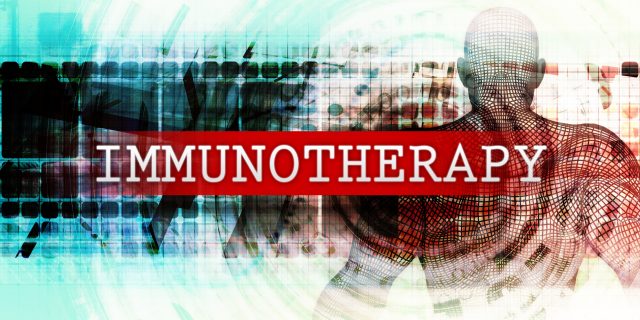Immunotherapy has been changing the way the world looks at cancer. Previously, we had only three options when it came to destroying cancer: cut, burn, and poison. But the past two decades of cancer research have yielded cutting-edge treatments that target tumors in new ways — ways that harness the body’s own power to fight off disease. This transformative treatment has been regularly treating late-stage cancers of the lung, bladder, and skin.
But such an innovative treatment develops at fast rates. Studies are done, trials are conducted, and FDA approvals are granted. Drugs like immune checkpoint inhibitors are becoming first-line treatments for many types of cancer. The speed of development seems to have left many people with unanswered questions about immunotherapy, or even unaware that it exists.
So what is immunotherapy, and what should you know about it?
 Immunotherapy is a treatment that utilizes the body’s own immune system to fight off diseases like cancer. Our immune system provides us with the best defense against diseases. It normally does a great job at protecting our bodies from foreign invaders. But cancer poses some complications. The immune system, unfortunately, isn’t always successful at recognizing malignant cells as foreign. Although the body is smart, cancer is smarter. Cancer finds ways to evade the immune system’s detection by utilizing tricks designed to shut the immune system down.
Immunotherapy is a treatment that utilizes the body’s own immune system to fight off diseases like cancer. Our immune system provides us with the best defense against diseases. It normally does a great job at protecting our bodies from foreign invaders. But cancer poses some complications. The immune system, unfortunately, isn’t always successful at recognizing malignant cells as foreign. Although the body is smart, cancer is smarter. Cancer finds ways to evade the immune system’s detection by utilizing tricks designed to shut the immune system down.
That’s where immunotherapy comes in. Some immunotherapy treatments work to stimulate the immune system in different ways that allow it to attack malignant cells. Some provide patients with man-made immune system components. One common immunotherapy treatment is called an immune checkpoint inhibitor. Checkpoint inhibitors block the immune system from “putting on the brakes,” when they see cancerous cells, which means they can be properly detected and attacked. These kinds of drugs include PD-1 and PD-L1 inhibitors, commonly known as pembrolizumab, atezolizumab, nivolumab.
Can all cancer patients utilize immunotherapy?
Unfortunately, not all cancer patients can benefit from immunotherapy. Because the field is relatively new, researchers don’t yet know all there is to know about it. It’s hard to say which patients will benefit and which won’t, but current research is working to fine tune that system so that doctors can more effectively selective immunotherapy candidates.
The good news is that immunotherapy has been utilized for many cancers, including those of the skin, breast, lung, and bladder. Your doctor will be able to advise you more individually on whether your case may benefit from immunotherapy.
Does immunotherapy have side effects like chemotherapy?
As with any drug, immunotherapy can have side effects. These side effects typically are not as debilitating as those a patient experiences after chemotherapy. Generally, patients tolerate PD-1 and PD-L1 checkpoint inhibitors fairly well. Common side effects can include fatigue, diarrhea, fever, nausea, and shortness of breath. But it’s important to note that some of the side effects, especially fever, may signal that the therapy is doing its job in stimulating the immune system.
Does antibiotic use impact the efficacy of immunotherapy?
Recent studies have shown that antibiotics could reduce the efficacy of immunotherapy by ridding the gut of helpful bacteria. It’s been shown that patients on checkpoint inhibitors and antibiotics do not fare as well as those on checkpoint inhibitors alone. If you have an infection and are currently being treated with immunotherapy, your doctor can determine the risks and benefits of using an antibiotic.
Why are many people skeptical of immunotherapy?
 Immunotherapy is relatively new in comparison to treatments like chemotherapy and radiation. Anything new always comes with a lot of public skepticism and doubt. With something as large and detrimental as cancer, medical communities want to be sure that patients are only getting the best treatment. As immunotherapy research grows and more patients receive treatment, the doubt surrounding it will likely minimize.
Immunotherapy is relatively new in comparison to treatments like chemotherapy and radiation. Anything new always comes with a lot of public skepticism and doubt. With something as large and detrimental as cancer, medical communities want to be sure that patients are only getting the best treatment. As immunotherapy research grows and more patients receive treatment, the doubt surrounding it will likely minimize.




























